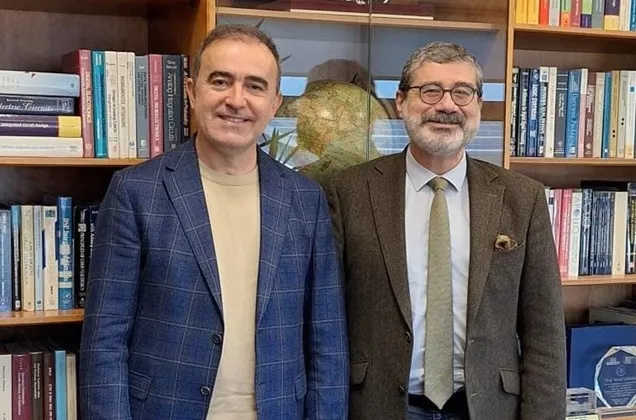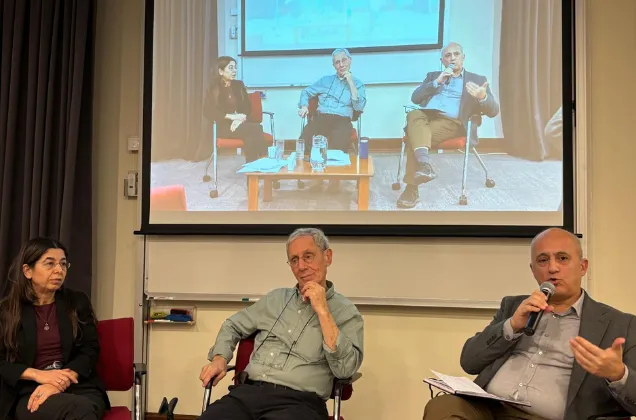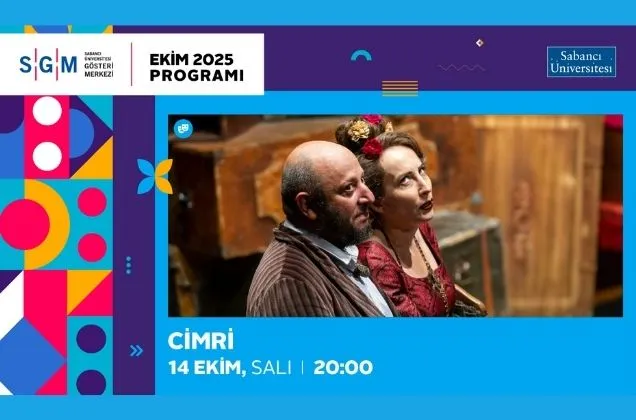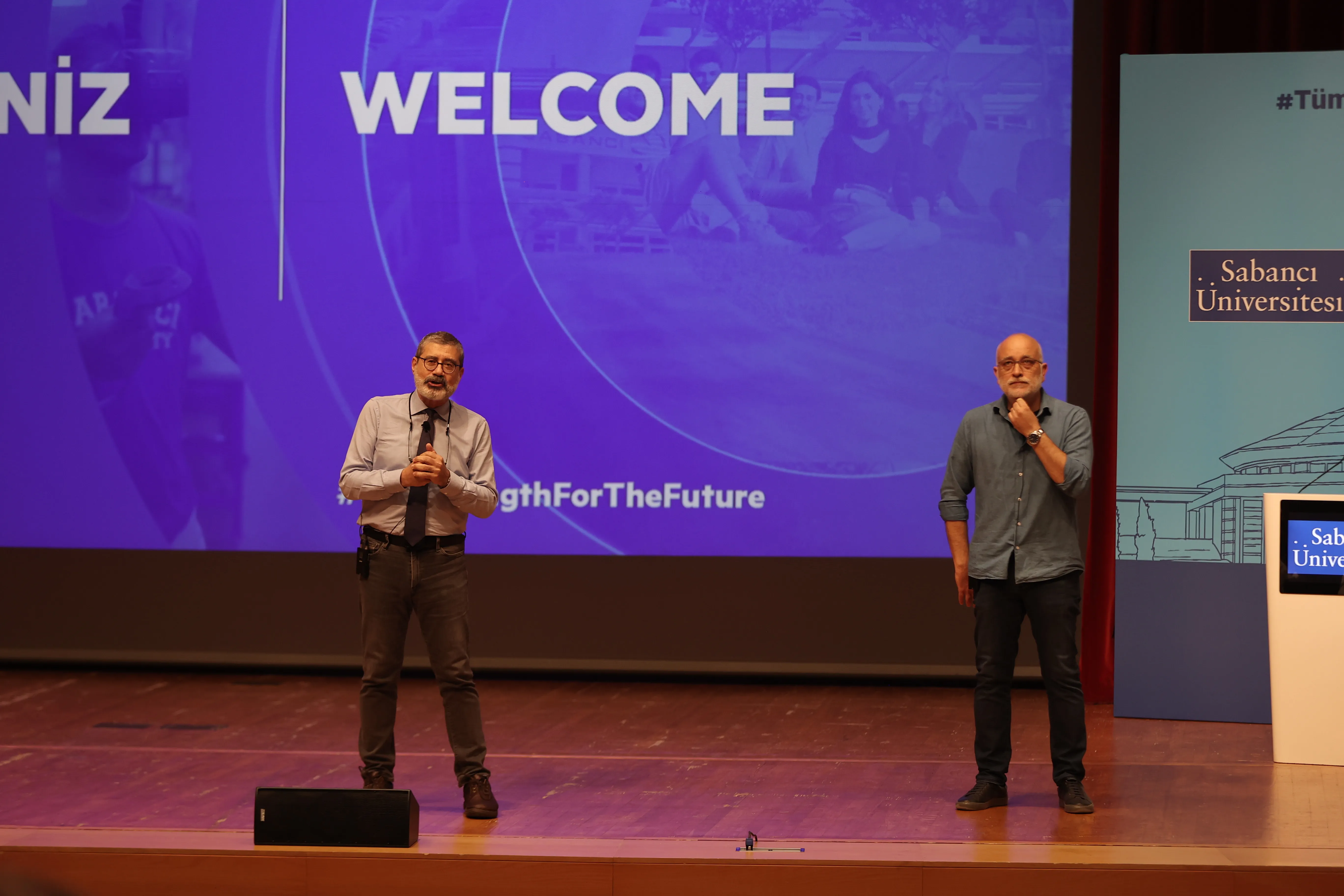27/10/2020
To celebrate the 20th year of our university, we have prepared a set of four questions to ask faculty and administrative personnel who have been with us since the beginning, and to our first students. They all tell "the story of 20 years" from their own perspectives.
Going in alphabetical order, this week's interviewee for "The Story of 20 Years" is Kemal İnan.
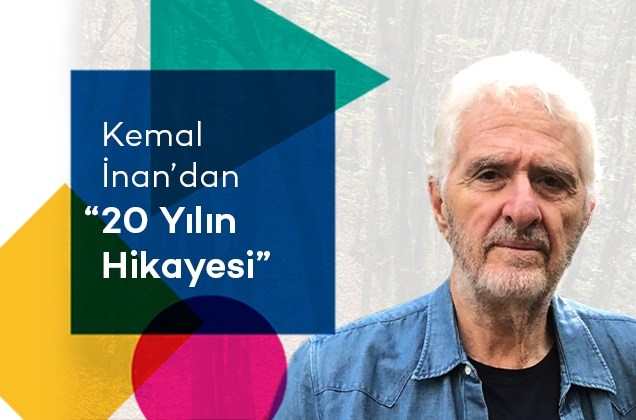
Kemal İnan has been a member of the Sabancı University family since 1 February 1998. Kemal İnan, who has been a faculty member at the Faculty of Engineering and Natural Sciences (FENS) of Sabancı University for 22 years and one of our Emeritus faculty members since February 2011, also served as the Founder Dean of the FENS between February 1998 and July 2007.
Kemal İnan’s answers to our four questions are below .
What was your initial memory / impression of when you met Sabancı University for the first time?
K.İ: There are so many that it is very difficult for me to pick one. The reason is this: my being a member of Sabancı University coincided with many radical changes in my life at the same time.
These include marrying my current wife Gülten, settling in Istanbul for the first time in a long time, and of course, taking up a administrative position with so much responsibility as the Founding Dean of the FENS at an ambitious university where my close friend, the late Tosun Terzioglu, whom I trusted very much, was the Rector.
It is not an opportunity that everyone is afforded to implement the enviable principles under radical and universal scales, that is, the principles of the establishment of an innovative world university such as Sabancı University.
Since I have so many memories, it is hard and not meaningful to choose a particular one. Let me explain this.
The moments I was most excited about and applied myself were the introductory speeches of Sabancı University, which I largely took responsibility for and delivered to students and their families during the university entrance exams. I was happy to learn from the students who later enrolled in our university on various occasions the decisive role these conversations played in their decision to join our university.
Apart from this, what comes to mind are the times when I visited US universities such as UC Berkeley, Stanford, and MIT to select faculty members as well as the Silicon Valley, where I delivered speeches introducing the university system in Turkey and the shining star of this system, Sabancı University, to students who had completed their doctoral studies and were conducting post-doctoral studies and engineers.
What are the differences between yourself 20 years ago and yourself today, and how did Sabancı University contribute to that change?
K.İ: 20 years ago I was 58 years old. In 2007, my 9-year tenure as the Founding Dean ended. In 2009, my late friend Tosun Terzioğlu's Rectorate ended.
It is questionable to what extent the excitement and development in the organization lasts after the initial stages. I think it would be unfair to see only managers as responsible for a possible transition from excitement to stagnation.
There were two universities I had previously experienced the excitement of foundation in a student and assistant capacity: The Middle East Technical University and the University of Warwick in England, where I started my PhD.
From these experiences, I learned this. An overly optimistic ideology dominates the initial stages of establishment of ambitious universities. Over time, especially the expectations and facts involved in monetary opportunities and the formation of the staff often fall into a conflicting process. For this reason, after a while, initial optimism must be replaced by a realistic and constructive mentality. I leave it to those closely experience this process at the administrative level to decide whether such a realistic and constructive process exists after the first 12 years.
After leaving the Dean's Office and then retiring with the title of Emeritus Professor, I did not and still do not express my opinion on the management of the University, following the principle of ‘stand out of my sunshine’, unless asked.
What comes into your mind when you think of Sabancı University in 20 years? What are your dreams for Sabancı University for the next 20 years? What about yourself?
K.İ: What comes to not only my mind, but to minds of many administrators and academics who claim to establish a new university when Sabancı University is mentioned is to implement the founding principles of Sabancı University. In an interdisciplinary environment where various disciplines are intertwined, sometimes integrated and sometimes divided, these principles firstly include (i) to be a university that allows for non-departmental and interdisciplinary interaction, and (ii) to ensure that the students have the ability to freely choose their own professional areas.
During this time, as a person who has passed through very different disciplines as a result of my own special background, I opened a new course called Technology and Society, which I teach 4 times in a 6-year period and which is open to all students. As a result of intensive work after the first semester I opened this course, I wrote my book titled Technological (Un)Functionality. The second edition of this book, printed by İletişim Yayınları in 2012, featured a new chapter added in early 2019. This book, which examines the unemployment caused by automation and artificial intelligence technologies and therefore the difficulty of transitioning to an information society, was selected as the book to be distributed to students for review by the reading club of the university in 2015.
Today, this topic is so vital that in the recent future, I believe that my ideas in this book will be extensively discussed once again.
Where and how would you be now if your paths hadn't crossed with Sabancı University?
K.İ: You need to be an oracle to answer this question. But I would probably be in a university environment again. The reason for this certainly comes not from my passion for teaching, but from my passion for learning. I mean, the passion I cannot give up is being a student!

